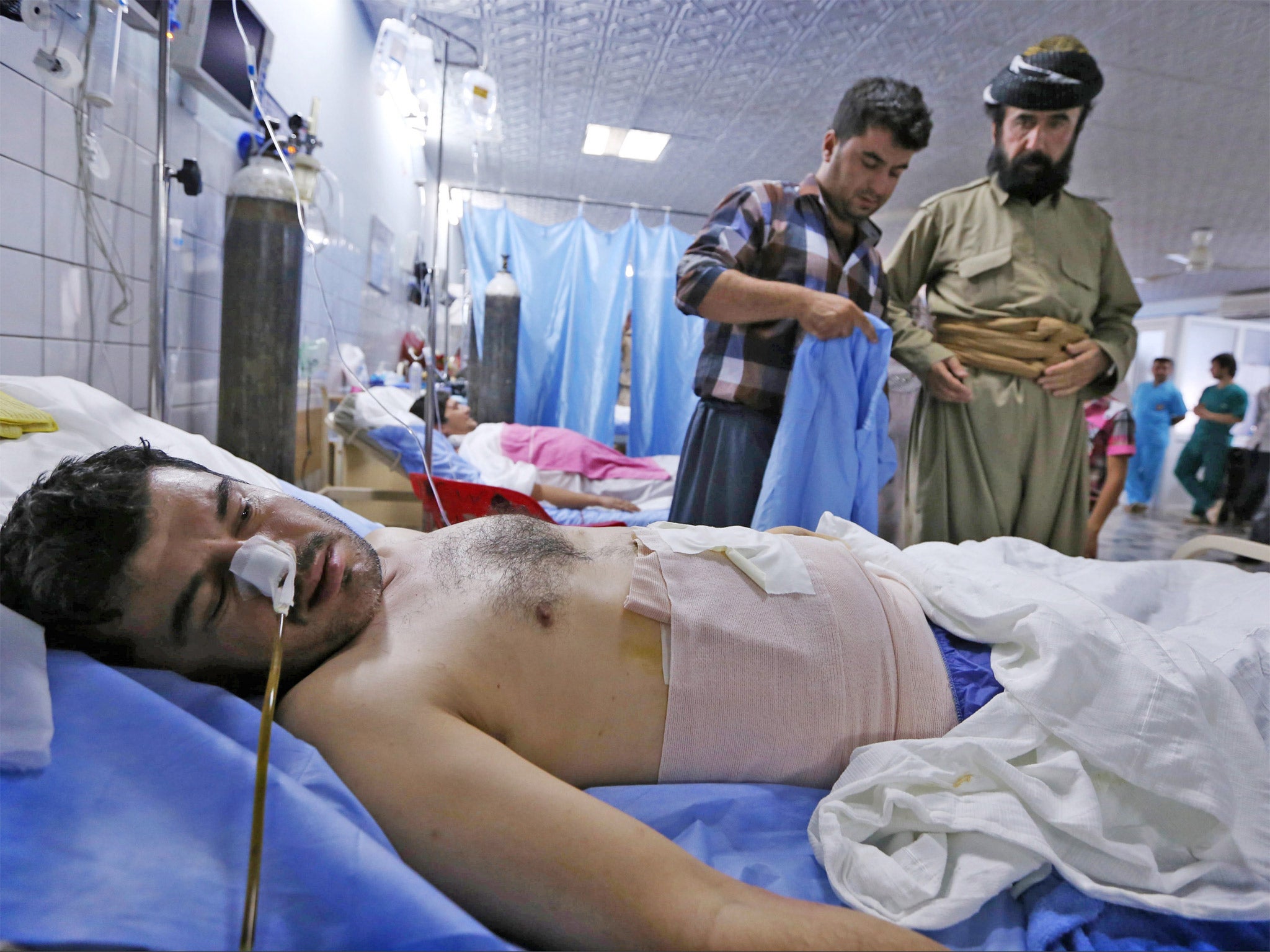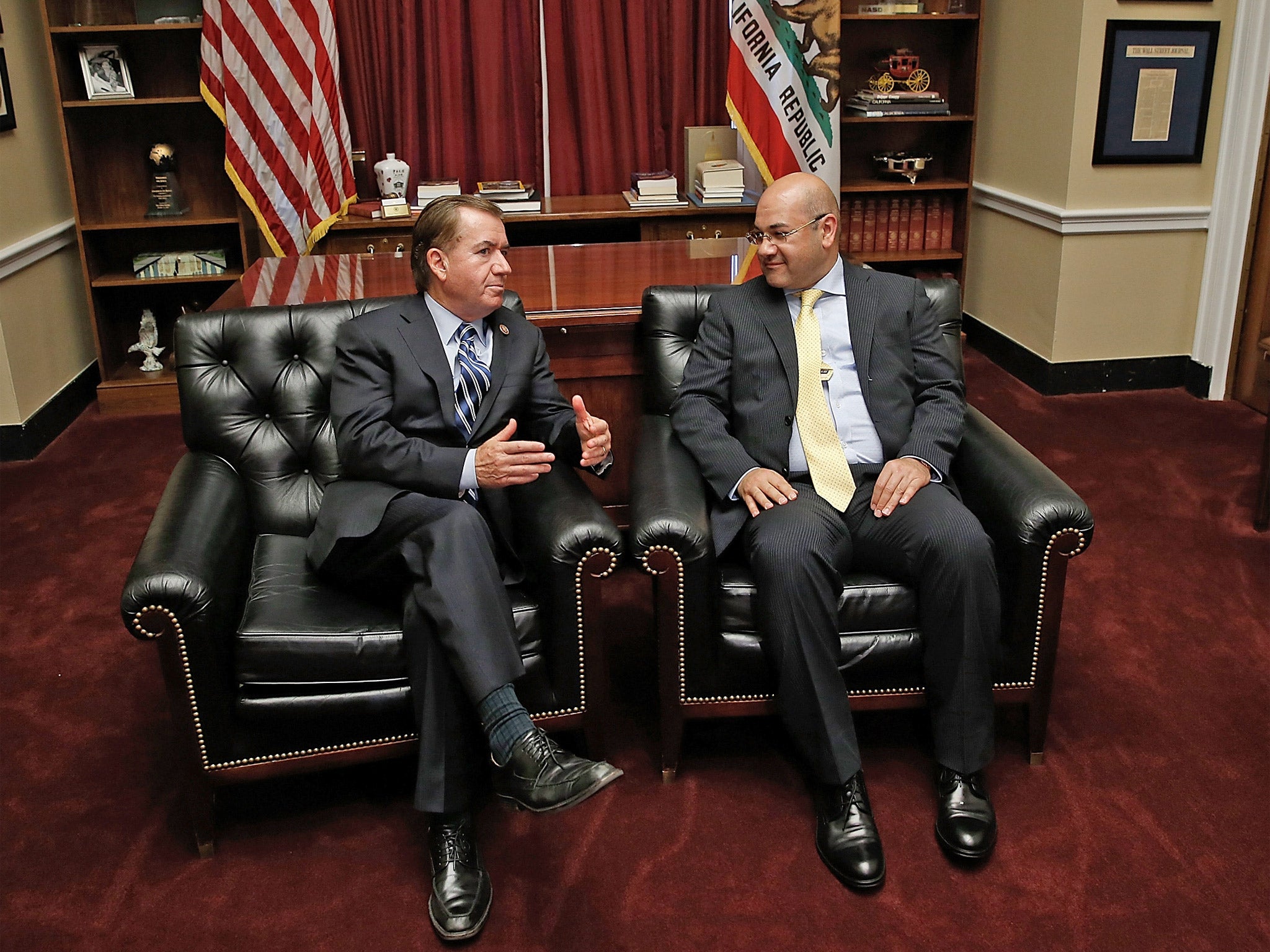Iraq crisis exclusive: US rules out military action until Prime Minister Nouri al-Maliki stands down

The US has told senior Iraqi officials that the Prime Minister, Nouri al-Maliki, must leave office if it is to intervene militarily to stop the advance of Sunni extremists, The Independent has learnt. The Sunni community sees Mr Maliki as the main architect of its oppression and the Americans believe there can be no national reconciliation between Sunni and Shia unless he ceases to be leader of the country.
Mr Maliki is showing every sign of wanting to cling to power despite the disasters of the past 10 days during which his army of 350,000 men, on which $41.6bn (£24.5bn) has been spent by Iraq since 2011, has disintegrated after being attacked by a far less numerous foe. He has blamed Saudi Arabia, the Kurds and treacherous generals, but has offered no real explanation nor taken responsibility for the defeat.
Mr Maliki was effectively appointed by the US in 2006 but is today seen as being under the influence of Iran. The Iranian leadership is divided on whether or not to withdraw its support from Mr Maliki and see Shia dominance and Iranian power in Iraq diluted. Iranian commanders have taken over central direction of the Iraqi army, but Iraqi politicians do not believe that Iran has a coherent plan to rescue the Baghdad government from the crisis. The Iranian President, Hassan Rouhani, said that “the great Iranian nation will not hesitate to defend the holy [Shia] shrines”. These are at Samarra in the front line, al-Kadhimiya in Baghdad and Najaf and Karbala further south.
The most effective shape for US military support would be air strikes on the Islamic State of Iraq and the Levant (Isis) fighters called in by American forward air controllers operating with Iraqi units. Drones would be largely useless against an elusive and lightly armed enemy, though US air strikes of any type would raise the morale of the Iraqi military and the Shia population.
There is a constitutional way of getting rid of Mr Maliki when the Iraqi parliament meets before the end of June. It must choose a speaker and a president who will then ask a member of the largest party to form a government. It is unlikely that Mr Maliki would be chosen Prime Minister as other parties unite against him. “It is impossible that he should serve a third term,” said an Iraq politician who did not want to be named.
But parliamentary procedures may be too slow to remove Mr Maliki and put in place a new Iraqi leadership capable of withstanding an uprising by Iraq’s five or six million Sunni population, led by Isis but including seven or eight other armed groups. The pace of the Isis advance has slowed north of Baghdad in recent days, but it is still capturing Sunni towns and villages where much of the armed male population joins it. The original force of Isis fighters, sometimes put at 10,000 men, is thereby multiplied many times.
This happened in the Sunni town of Hibhib near Baquba, which is 40 miles north-east of Baghdad, over the last two days. A local woman speaking by phone said: “Less than 100 Daesh [Isis] came into the town and soon became more than 2,000 armed men. Even teenagers aged 14 and 15 are carrying rifles and setting up checkpoints.”
The general support for the Sunni revolt in northern and western Iraq will make it very difficult for any counter-offensive, which would be facing far more opponents than Isis originally fielded. Isis now controls almost all the Euphrates valley from Fallujah west of Baghdad through western Iraq and eastern Syria as far as the Turkish border. Any long-term campaign against Isis by the Iraqi government backed by US air power would require air strikes in Syria as well as Iraq. The two countries have effectively become a single battlefield.
The success or failure of the US and Mr Maliki’s domestic opponents in replacing him in the next few weeks will be crucial in determining the future of the conflict. A chief reason why Isis, Sunni armed groups and the Sunni population have been able to form a loose common front against the government is the antipathy of the Sunni population to Mr Maliki. They see him as systematically reducing them to second-class citizens and putting as many as 100,000 in jail, with prisoners often held because of confessions extorted by torture or without any charge at all. Hostility to Mr Maliki provides part of the glue that holds the Sunni coalition together.
But the Iraqi government’s problems are immediate and require intelligent leadership which continues to be lacking. This was shown in Mosul last week where two senior generals took off their uniforms and fled to Erbil, the capital of the Kurdistan Regional Government’s semi-independent zone. Overall, some 230,000 soldiers are reported to have deserted their units.
Mr Maliki continues to take many military decisions himself. Iraqi sources say that just before Isis stormed Tal Afar, a Shia Turkoman city of 300,000 west of Mosul, last weekend the KRG President Masoud Barzani sent a message to Mr Maliki offering to send peshmerga (Kurdish soldiers) to defend it. Mr Maliki rejected the proposal. Such peshmerga as were in Tal Afar were withdrawn and Isis took over.
Unless it is too over-extended to make further advances, Isis may think it in its interests to strike quickly at Baghdad before the US and Iran decide what to do and while the political and military leadership in Baghdad is in turmoil. The Shia are the majority in the capital but there are Sunni enclaves in west Baghdad which might rise up.

Living conditions all over northern and central Iraq will get more difficult as the economic unity of the country is broken. Baghdadis mostly cook on bottled propane gas, but this can no longer be supplied from Kirkuk because the road is cut by Isis. The insurgents have also taken three-quarters of Baiji refinery according an official speaking from inside the plant. The government’s version of what has happened at Baiji according to state television is that 44 Isis fighters were killed and survivors fled.
Mr Maliki’s best chance of staving off calls for his departure is that the threat to Baghdad will get so severe that Washington and Tehran will have to give support even if he stays. He has already been strengthened by the Shia clerical leadership in Najaf calling for people to join the Iraqi army. Not everything that has gone wrong in Iraq is Mr Maliki’s fault, but his responsibility for the present catastrophe is too great for him to play a positive role in averting a sectarian civil war.
Join our commenting forum
Join thought-provoking conversations, follow other Independent readers and see their replies
Comments
Bookmark popover
Removed from bookmarks